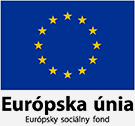Research
ResearchWe examine the accompanying aspects of education called “contextual variables” and their relationship to students’ school achievement. The educational results of students are affected by their study assumptions, such as student’s motivation, intellectual potential and socio-economic and cultural status, which may hardly be influenced by schools. Interpersonal relationships – school climate, classroom climate and climate of teaching staff, the style of director’s management, interactive style of teacher’s work and social inclusion – may also affect the school achievement. The progress in students’ knowledge in the core subjects Slovak language and literature and Mathematics is linked with contextual variables in the development of value-added model in education.
Research Objectives
We expect that the research of accompanying aspects will bring findings on which of these aspects affects the student’s school achievement, i.e. the importance and way of impact. Therefore, the cognitive testing in Slovak language and literature, reading literacy, mathematics and mathematical literacy is planned to be extended by measurements of other students’ characteristics, their attitudes and conditions for education. These factors are called contextual variables. By statistical processing of input and output cognitive measures of students of examined schools, we will obtain each cooperating school’s value-added in education of their students in a given subject or study field. The same students will be asked to fill other tests, questionnaires and surveys, from which we will obtain contextual variables of educational quality. Along with other objectives, our primary research objective is to find those contextual variables which are not influenced by the school, but have impact on students’ performance. Such variables are student’s socio-economic and cultural status, health disability, attendance at classes etc. The purpose is clear – we would like to inform each examined student about their educational achievement in comparison with about 4,000 students of their age and provide the schools with the most objective and adequately complex reflection of quality of their work. The feedback will be discreet, and will be used for the purpose of self-assessment of students and schools.





